Griffiths: Riyadh pact paves way for comprehensive peace process in Yemen

Alarabiya
The United Nations envoy for Yemen, Martin Griffiths, on Friday thanked Saudi Arabia for its role in reaching the Riyadh agreement between Yemenis.
“The Riyadh agreement paves the way for a comprehensive peace process in Yemen,” Griffiths said during a briefing on Yemen at the UN Security Council.
ALSO READ: Saudi King Salman says Kingdom seeks political settlement in Yemen
Griffiths also told the UN Security Council that the number of air strikes by the Coalition battling Iran-aligned Houthis in Yemen has dropped nearly 80 percent in the last two weeks, via a video link to the UN headquarters.
“In what is perhaps an even more important sign that something is changing in Yemen ... In the last two weeks the rate has dramatically reduced: there were almost 80 percent fewer airstrikes nationwide than in the two weeks prior,” he said, pointing to the trend as a possible prelude to a general cease-fire in the country.
“In recent weeks, there have been entire 48-hour periods without air strikes for the first time since the conflict began,” he said.
“We call this de-escalation, a reduction in the tempo of the war, and perhaps a move towards an overall ceasefire in Yemen,” he said.
In his video briefing, Griffiths cited evidence of the leadership required to end the war in the November 5 power-sharing agreement between Yemen’s government and southern separatists brokered by Saudi Arabia in the capital Riyadh.
“The prospect of a break-up of the state was real and frankly terrifying,” he said.
Griffiths said that during 86 days of negotiations leaders from both sides sat together and agreed to work for a greater cause and the Saudi leadership praised them for their courage rather than criticizing them” for the length of time to reach a deal.
“It should serve as a catalyst to move Yemen swiftly towards settling this conflict through political means,” Griffiths said.
The UN envoy said there are also “continued positive signs” in implementing last December’s agreement on Hodeida, Yemen’s major port and most important entry point for international aid.
Griffiths cited this month’s agreement with the government on a new way to deposit taxes and customs fees for commercial oil and gas shipments that averted a crisis and allowed fuel ships to enter Hodeida.
He said the parties “have also strengthened their adherence to the cease-fire” in Hodeida by establishing a new “cease-fire enhancement and de-escalation mechanism” that reduced the number of security incidents in the Hodeida region by 40 percent. And he said the creation of five joint observation posts has led to an 80 percent reduction in security incidents in Hodeida city.
Concerns over restrictions in Hodeida
At the same time, Griffiths also expressed concern at increasing restrictions on the movement of UN personnel overseeing implementation of the Hodeida agreement.
UN deputy humanitarian chief Ursula Mueller told the council there has been “an alarming increase in violence and harassment targeting humanitarian workers” in areas controlled by the Houthis, as well as continuing attacks in the country.
She pointed to artillery shelling that hit a market in Saada two days ago, reportedly killing and injuring dozens of civilians, an attack that badly damaged a hospital in the town of Al Mukha in Taizz governorate two weeks ago, and reports of fishermen killed by airstrikes, shells landing on civilian homes and sites hosting displaced Yemenis, and land mines exploding and killing and injuring civilians.
“Despite these and other incidents, there are also some signs of progress,” Mueller said. “In October, there were fewer civilian casualties than any other month this year, while September was the year’s deadliest month for civilians.”
Britain’s UN Ambassador Karen Pierce, the current Security Council president, told reporters after closed consultations that followed the open meeting that council members welcomed the Riyadh agreement and believe “it’s an important step towards progress.”
There is “very strong support” from the council for Griffiths’ efforts to pave the way for the Yemeni parties to come together and “reinvigorate the inclusive, wider political process.”
Latest News
-
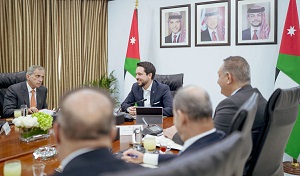 Crown Prince chairs meeting to review programme on combating littering
Crown Prince chairs meeting to review programme on combating littering
-
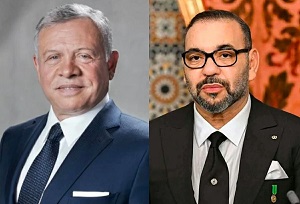 King congratulates Morocco monarch on football team’s 2025 Arab Cup win
King congratulates Morocco monarch on football team’s 2025 Arab Cup win
-
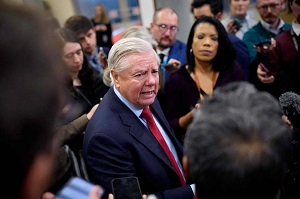 US Senator Accuses Hamas and Hezbollah of Rearming
US Senator Accuses Hamas and Hezbollah of Rearming
-
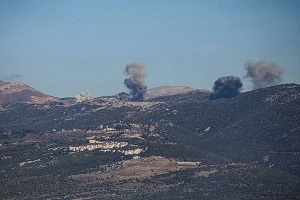 One Dead in Israeli Strikes on South Lebanon
One Dead in Israeli Strikes on South Lebanon
-
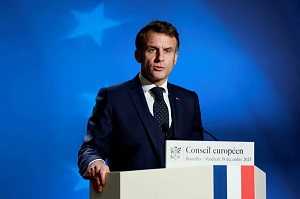 Putin Ready to Talk to France’s Macron on Ukraine, Says Spokesman
Putin Ready to Talk to France’s Macron on Ukraine, Says Spokesman